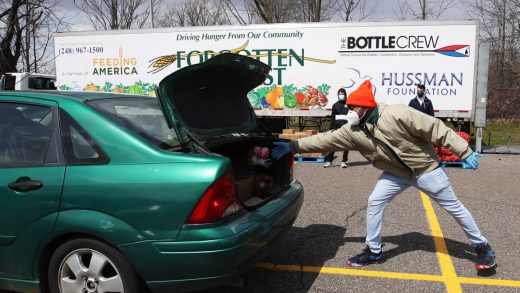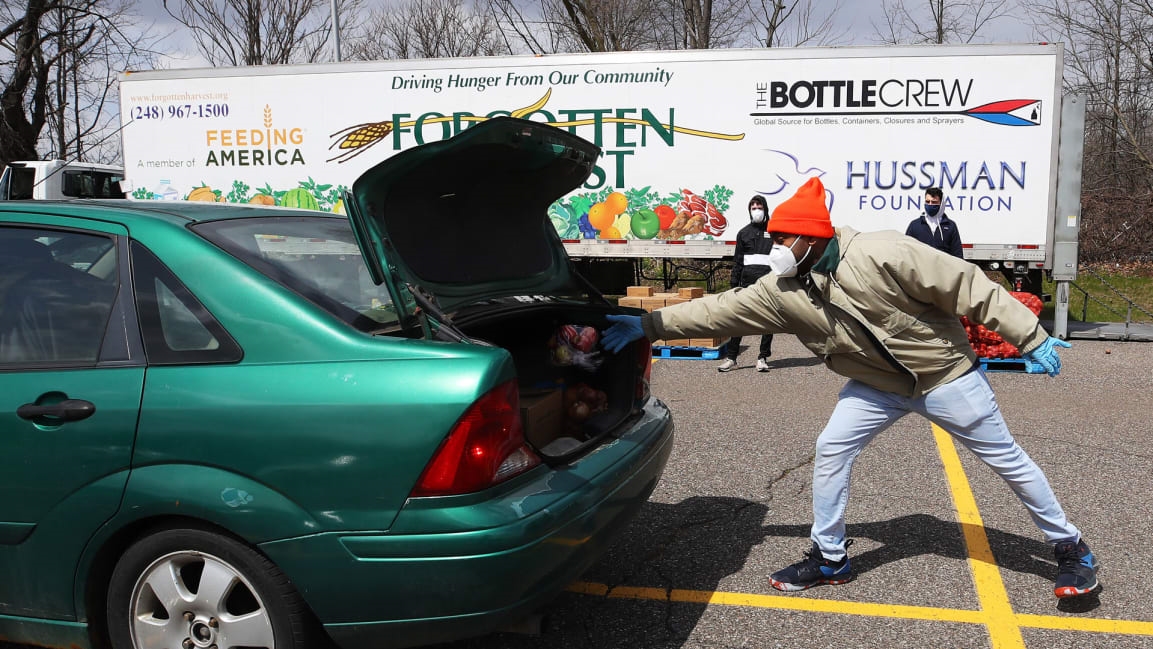Why helping others is good for your mental health during quarantine and 10 easy ways to do it
Times of crisis historically have brought humanity together to help each other survive and get through difficult and challenges. Some research contends that as a species, we are hardwired for a certain degree of altruism, which is rooted in feelings of compassion and empathy, and driven by an evolutionary need to survive. Neuroscientist Donald Pfaff of the Laboratory of Neuroscience and Behavior at The Rockefeller University in New York City, argues that brain biology compels us to be kind.
Helping others counteracts the stress, anxiety, and depression that a pandemic like COVID-19 can bring. Research shows that volunteering can lower mortality and bring more life satisfaction and happiness to the volunteer. People who volunteer often report what is labeled as a “helper’s high,” which can be explained by an increase in the hormone oxytocin, which is sometimes called the “cuddle” or “love” hormone because it gives us a warm and fuzzy feeling when we snuggle up or bond socially.
Although there is no definitive research on how much or how often we need to show our caring to others to feel these effects, many of us feel a sense of control over chaos when we feel we are doing something to help in times of need. The COVID-19 pandemic has created a unique set of needs and has exacerbated the needs we already had. With almost 17 million people filing for unemployment in the three weeks prior to April 9, the U.S. is now reporting unemployment rates not seen since the Depression. More and more people need financial, emotional, and resource help, and there are lots of ways to provide much-needed support.
Here are 10 ways you can help even during quarantine for COVID-19.
1. Give blood
According to the Food and Drug Administration (FDA), every two seconds someone needs a blood transfusion. However, because of the social distancing demands of the pandemic, they report that the number of blood donations has been significantly reduced. They argue that there is a critical need to maintain the national blood supply and that blood donation is safe as blood donation centers are well trained in how to prevent the spread of infection. Contact your local Red Cross for information on blood drives near you.
2. Bring food to people who are socially isolated
Meals on Wheels provides a primary lifeline that is more than just a nutritious meal; they also provide a human connection to people who are often isolated. Contact your local Meals on Wheels provider to see how you can help.
3. Volunteer at a food bank
Feeding America reports that 37 million Americans face hunger every day, and this number includes 11 million children and 5.4 million seniors. And with the significant loss of jobs, this number is only growing.
4. Conduct wellness checks on people who are socially isolated
Reach out to isolated friends, neighbors, and family members on a regular basis. Set up a scheduled time for you to check in with them daily or several times a week. This reduces the risk of depression and loneliness that social distancing and shelter-in-place orders may engender.
5. Help someone with errands
For those people who are at high risk for the virus or would otherwise find it difficult to go to the grocery store, pick up their mail, go to the laundromat, or do any other errand, volunteer to do this for them taking care to use gloves and a mask and to wash your hands (and use hand sanitizer if you have it) before and after delivery. You can post a notice in your building or connect with community-based organizations that have sprung up around the country for this purpose.
6. Sign up with a warm line or crisis line
A recent poll by the Kaiser Family Foundation found that 19% of adults say COVID-19 has had a major impact on their mental health. You can help by being a friendly voice of support and human connection at a time when people are feeling particularly vulnerable.
7. Make or do something nice for first responders and essential workers
These are people who are putting themselves in harm’s way by keeping our restaurants open, delivering our food, working in grocery stores, and providing essential health services. Make a sign that tells them they are appreciated and bring that with you when you have to run essential errands. Or put it in your yard or post on your building’s front door. Send gift cards. Or flowers.
8. Make a mask
If you are crafty or know how to sew, make masks for your friends and family or essential workers. The Centers for Disease Control and Prevention (CDC) has guidelines on how to make masks that slow the spread of COVID-19. There are even masks that don’t require sewing at all.
9. Use your skills to help
If you want to use your professional skills–such as design, marketing, website construction, etc.–to help an organization across the country, check out Catchafire, a platform that connects you with an organization that could use your specific skill set.
10. Businesses can help, too
If your company wants to help during this time, it can provide support in any of the ways described above. Facilitate discussions with your employees about how they want to help and find ways to support their individual efforts, while also finding ways for your organization to put your unique resources to work.
Whichever way you choose to help, remember that we are all in this together, and whatever we can do to ease the burden for some of us will make us feel the “warm glow” that sharing and caring for others brings.
Ruth C. White PhD, MPH MSW is a clinical associate professor of social work at the University of Southern California, and a mental health contributor to KRON4 TV Bay Area. She is the author of The Stress Management Workbook and the forthcoming Everyday Stress Relief.
(23)



